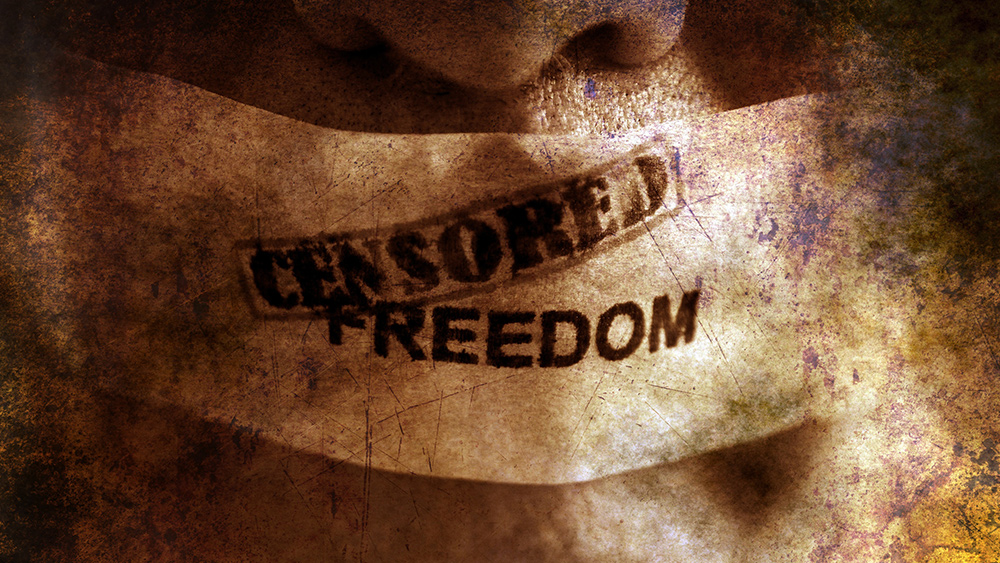Google, Twitter tighten censorship noose on conservatives ahead of election
07/23/2020 / By News Editors

Big Tech mega-companies like Google, Facebook and Twitter appear determined to influence the 2020 presidential election and prevent President Donald Trump’s second term.
(Article republished from HeadlineUSA.com)
Google was caught red-handed on Tuesday blacklisting conservatives and right-leaning news websites.
Google controls 90 percent of all American internet searches, and the global information juggernaut flexed its muscles by censoring sites like The National Pulse, Breitbart, Citizen Free Press, the Daily Caller, Red State, The Bongino Report and more.
But people like Mediaite reporter Charlie Nash eventually caught on.
Just noticed Google has removed several conservative websites from search results (at least on my end, in the UK). RedState, Breitbart, Daily Caller, Human Events, and more – all like this for pages of results pic.twitter.com/v2PHFgZ3zY
— Charlie Nash (@CharlieNash) July 21, 2020
The blacklisting spanned at least the United States and Western Europe.
Internet searches would not produce links to the censored websites, only adversarial articles about them from mainstream news outlets and biased fact-checking sites.
After Trump was elected in 2016, Google produced an 85-page internal document called “The Good Censor,” which caused an uproar when it leaked to the public.
The document called for the abandonment of free speech for the “safety and civility” of society and conveniently gave Google permission to manipulate information to achieve desired political results.
Once the lid was blown off Tuesday’s blacklisting scheme, Google backpedaled, restored the conservative sites’ search functions and claimed the entire affair was caused by a technical glitch.
Twitter, on the other hand was out in the open with its own major censorship moves.
The site, which once adamantly denied shadow-banning conservative users, recently appeared to have sanctioned the practice in its official polices.
A screenshot posted last week—which the social media platform quickly proceeded to remove—appeared to show two of the secretive lists that it maintained allowing algorithms to censor conservative media.
On Tuesday“Twitter Safety” announced it had banned 7,000 accounts for supposedly trafficking in “QAnon” conspiracy theories, and another 150,000 accounts were limited all because the social media company said there was potential for “off-site harm”—an impossible standard.
But as many users noted, Twitter allows the violent communist group Antifa to organize on its platform, Islamic radicals are also active, and even transparently dangerous pedophile accounts are allowed without accountability.
After the site began implementing misleading fact checks against President Donald Trump, the president issued an executive order affirming that any social media platforms that censored for political purposes would be subject to greater liabilities under the Communications Decency Act.
However, the feud seems to have done little but to embolden some of the biased companies to further antagonized dissenting viewpoints with impunity.
For example, a Virginia judge ruled recently that Rep. Devin Nunes, R-Calif., could not hold Twitter accountable in a libel suit that said several parody accounts had caused malicious harm by falsely impersonating him and his family.
Read more at: HeadlineUSA.com
Tagged Under: banned, Big Tech, Censored, Censorship, conservatives, conspiracy, election meddling, elections, First Amendment, free speech, Google, left cult, politics, presidential elections, propaganda, rigged, tech giants, Twitter
RECENT NEWS & ARTICLES
COPYRIGHT © 2017 BigTech.news
All content posted on this site is protected under Free Speech. BigTech.news is not responsible for content written by contributing authors. The information on this site is provided for educational and entertainment purposes only. It is not intended as a substitute for professional advice of any kind. BigTech.news assumes no responsibility for the use or misuse of this material. All trademarks, registered trademarks and service marks mentioned on this site are the property of their respective owners.


















